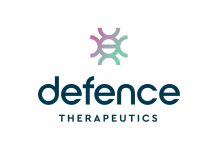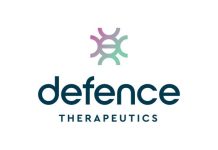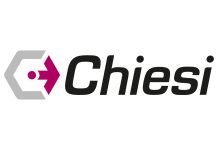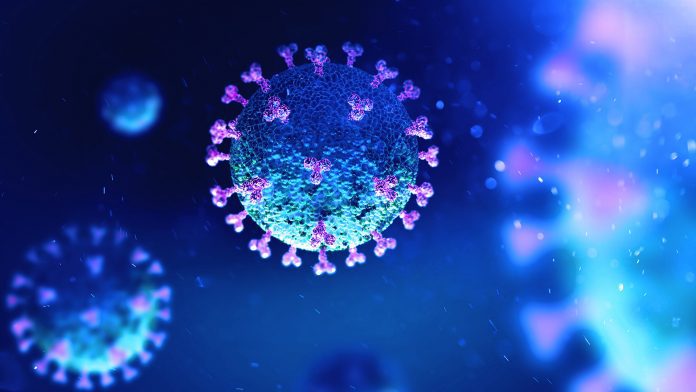
Zentek has announced that its aptamer platform, under global license from McMaster University, has been successfully tested as a therapeutic for SARS-CoV-2 in pre-clinical animal models.
Following its May 2022 press release, Zentek Ltd. has announced that its aptamer platform has been successfully tested as a potential prophylactic or therapeutic for SARS-CoV-2 in pre-clinical animal models.
In repeat trials, the aptamer platform, developed by Dr Yingfu Li, demonstrated similar efficacy against SARS-CoV-2 when benchmarked against a commercial monoclonal antibody.
Based on a novel approach, the new aptamer was developed under the exclusive worldwide 20-year license agreement between Dr Li’s lab at McMaster University and Zentek – first announced on 17 June 2021.
Promising results seen in the pre-clinical trials
Dr Yingfu Li’s team developed a series of aptamers with high-binding affinity with the SARS-CoV-2 spike protein.
In February 2023, the aptamer that was best performing against all SARS-CoV-2 variants was tested in vitro to assess the neutralising of the virus by the aptamer in Vero cells.
This brought back strong results, motivating the move to in vivo trials.
All of the pre-clinical trials were designed and supervised by Dr Matthew Miller, the Canada Research Chair in Viral Pandemics and the director of the Michael G DeGroote Institute of Infectious Disease Research.
The first pre-clinical trial included three groups of mice:
- Group A, which was a control group and received no prophylactic treatment;
- Group B, which received a commercial monoclonal antibody that was a leading antibody for the original SARS-CoV-2 strain until it was rendered ineffective due to antigenic changes in Omicron sublineages; and
- Group C, which received an aptamer designed by Dr Li’s team.
All groups were infected with SARS-CoV-2.
The mice that received the antibody and aptamer treatment had minimal weight loss after four days. The control group had a 10% body weight decline during this period.
As well as this, the viral burden of the control group was measured at 10,000 PFU per lung. Comparatively, the viral burden was undetectable in the lungs of the mice that were treated with the aptamer platform or antibodies.
Based on these results, an additional trial was completed following the same procedure with a lethal challenge dose of SARS-CoV-2 where the mice were once again divided into three groups: control, antibody, and aptamer treatment.
After four days, the control group lost 20% of their body weight and all mice reached humane endpoints.
The groups receiving either the aptamer or antibody treatment had less than a 5% reduction in body weight after the four days.
The assessment of the lungs on day four post-infection showed that the aptamer platform, like the antibody, protected the lungs from observable tissue damage.
However, the control group’s lungs had evidence of significant haemorrhaging.
The antibody and aptamer prophylactic provided sterilising protection where no detectible viral titers were measurable. This showed that there was a similar performance between the commercial monoclonal antibody and the new aptamer platform.
Dr Yingfu Li stated: “The binding affinity of our aptamers has translated exceptionally well to neutralise the virus in both in vitro and more importantly in in vivo animal tests. Since the neutralisation of the virus occurs because our universal spike-binding aptamer binds to the spike protein and prevents the virus from binding and infecting the ACE2 receptors, I believe this aptamer may be a potential prophylactic or therapeutic for all current and possibly future variants of SARS-CoV-2 including XBB 1.5.
“Having the in vivo pre-clinical results strongly correlating to the earlier in vitro results from my lab was not only very exciting but will be very helpful as a predictive model as we study new targets.”
Dr Matthew Miller commented: “Our lab has been at the forefront of COVID-19 research and vaccine development in Canada. Since the outbreak, we have been looking for therapeutics that are effective, safe, and can be rapidly developed for current and future pandemic outbreaks.
“The results we observed with the Li Lab aptamers are incredibly exciting! I see great potential for these aptamers to be used to develop treatments and prophylactics for other potential targets. This is a significant first step in the pathway to prevent and treat COVID disease with aptamers.”
What are aptamers and are they safe for therapeutic use?
Aptamers are synthetic single stranded DNA or RNA type molecules that are built from the same building blocks of human DNA or RNA. Therefore, they offer a significant positive safety profile and have already demonstrated such safety.
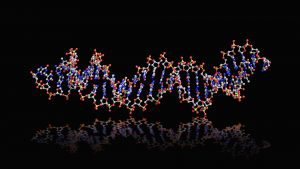
In a 2018 article titled ‘Pharmacokinetics, Pharmacodynamics, and Safety of Aptamers’ by Kovacevic et al., it was stated that aptamers are considered to be generally safe based on multiple studies of aptamers for therapeutic use.
Toxicology studies and off-target side effects also lead to the conclusion that aptamers are safe for use.
What are the next steps?
Due to the significance of these results and this opportunity, a pre-clinical plan is being formulated for the development of a COVID-19 therapeutic/prophylactic based on the Dr Li’s aptamer platform.
Dr Li is also working on other targets for aptamer treatments. These are under early investigation.
Greg Fenton, CEO of Zentek, commented: “The results of this testing conducted by the Miller Lab, has exceeded our expectations. The potential of these aptamers to play a role in the prevention, detection, and treatment of Covid and potentially other diseases is significant.
“Additionally, what we understand about the safety profile of aptamer-based therapeutics also de-risks this project and could potentially lead to a shorter pathway to commercialisation.
“We are currently focusing on this opportunity and the continued development of aptamers, for both therapeutic and diagnostic uses and this is now a high priority for Zentek.”
Amendment to McMaster license agreement
Pursuant to a license agreement dated 11 June 2021, McMaster University granted Zentek a worldwide exclusive royalty-bearing license to use and practice certain aptamer-based rapid detection technologies to detect SARS-CoV-2, for a 20-year term.
Effective 23 June 2023, the license agreement was amended to broaden the scope to apply to all aptamer and DNAzyme uses, including diagnostics, therapeutics, and as neutralisation agents, and not limited to SARS-CoV-2.
Zentek is not making any express or implied claims that its product has the ability to eliminate, cure, or contain the Covid-19 (or SARS-2 Coronavirus) at this time.



